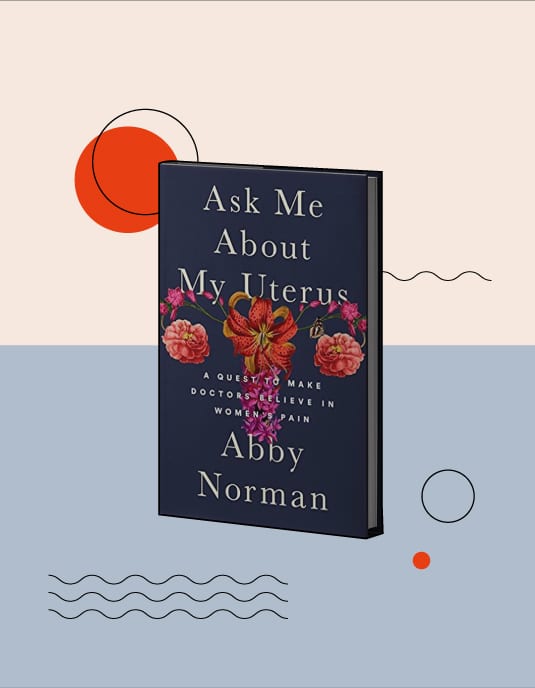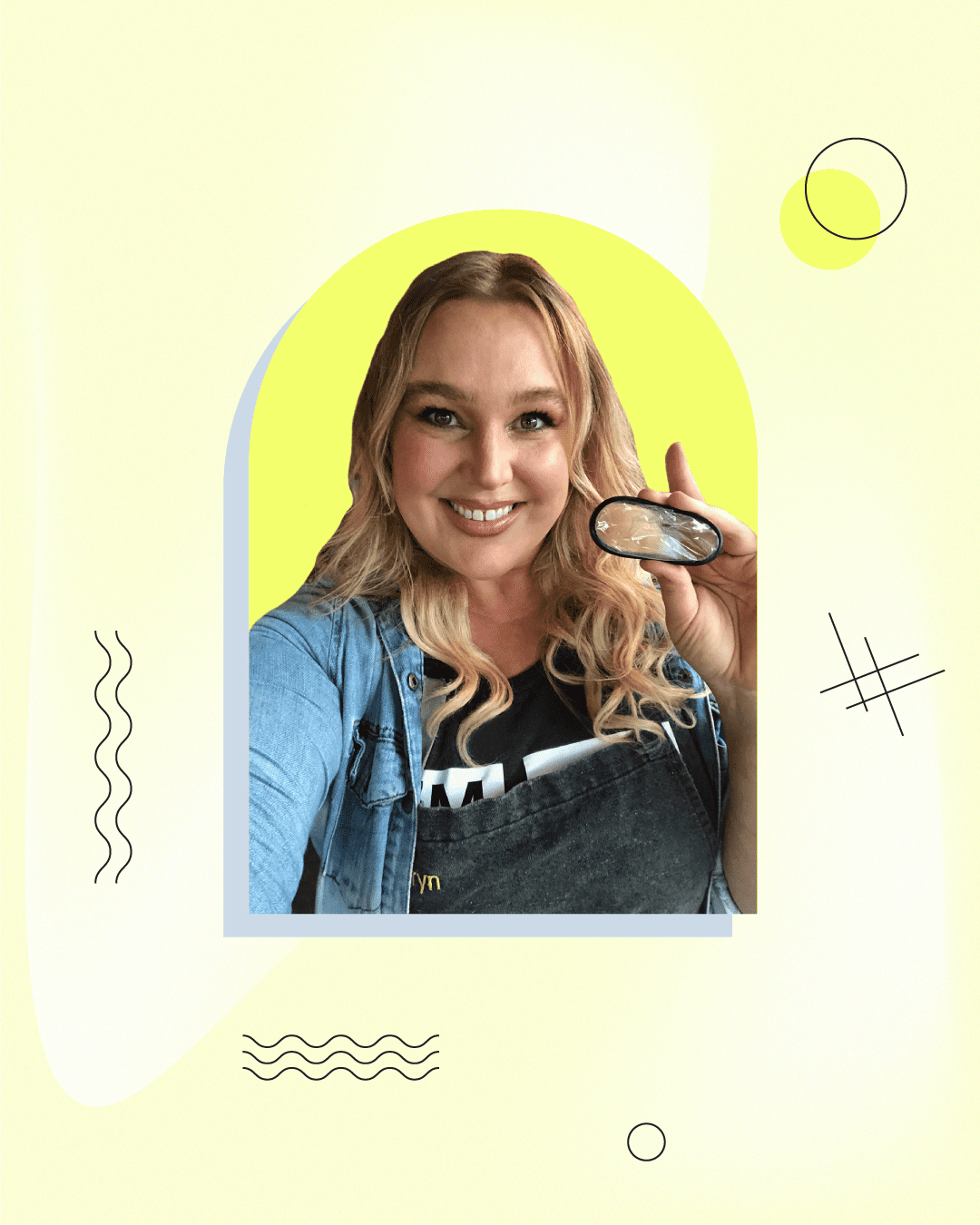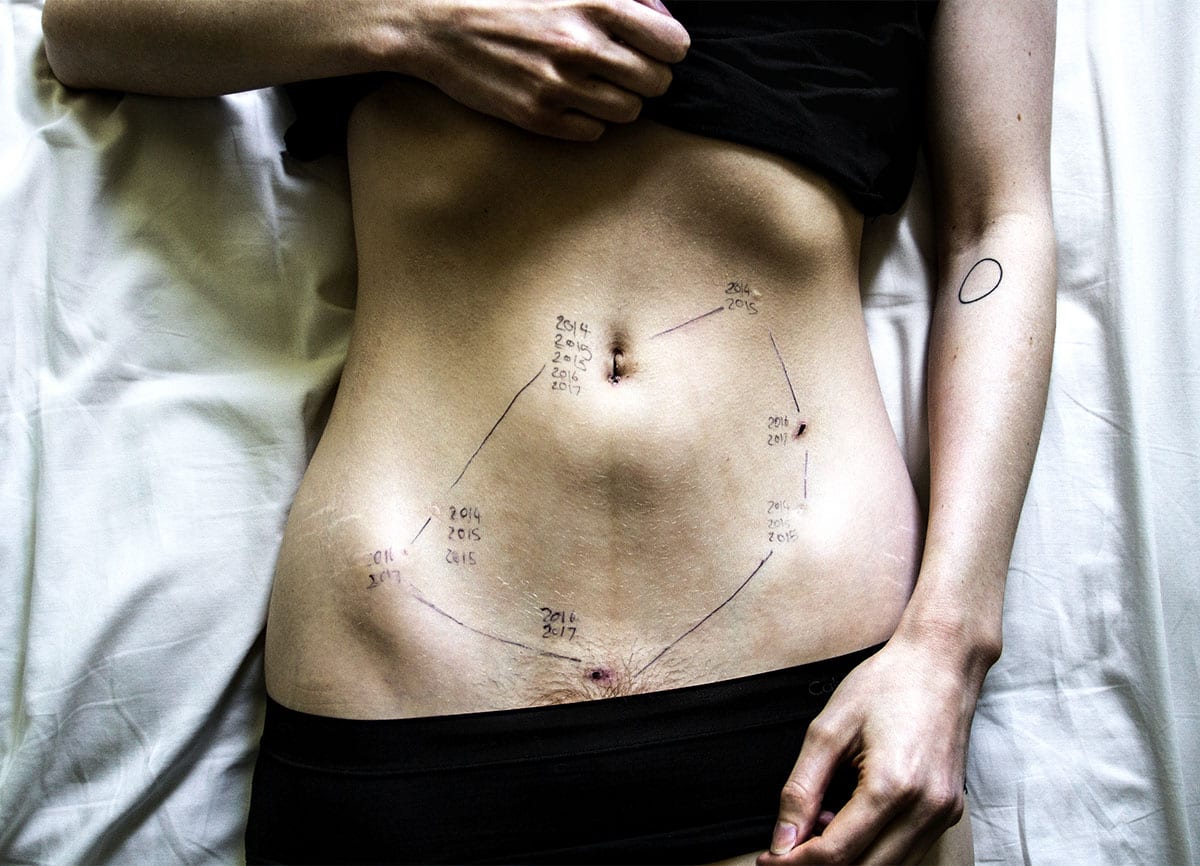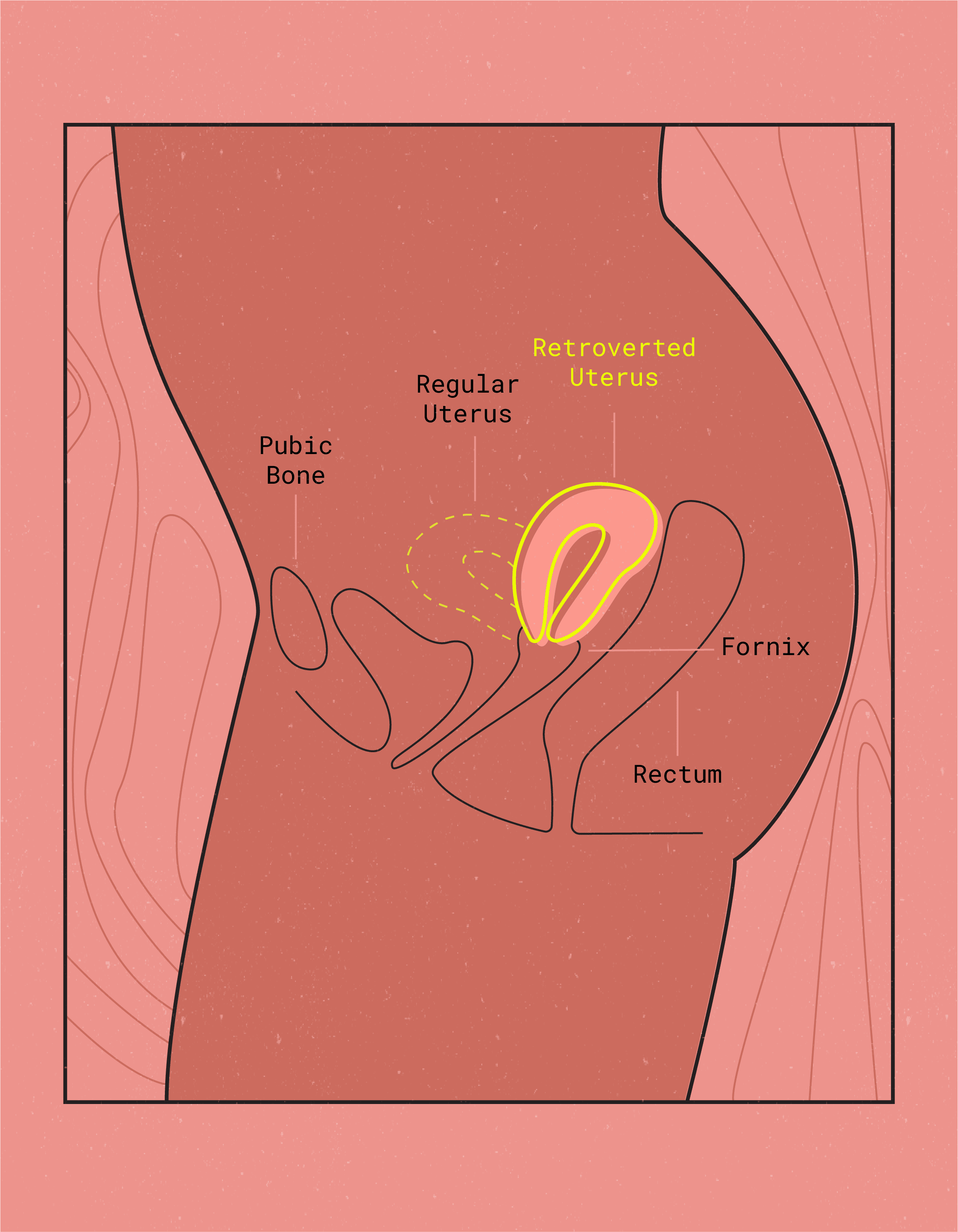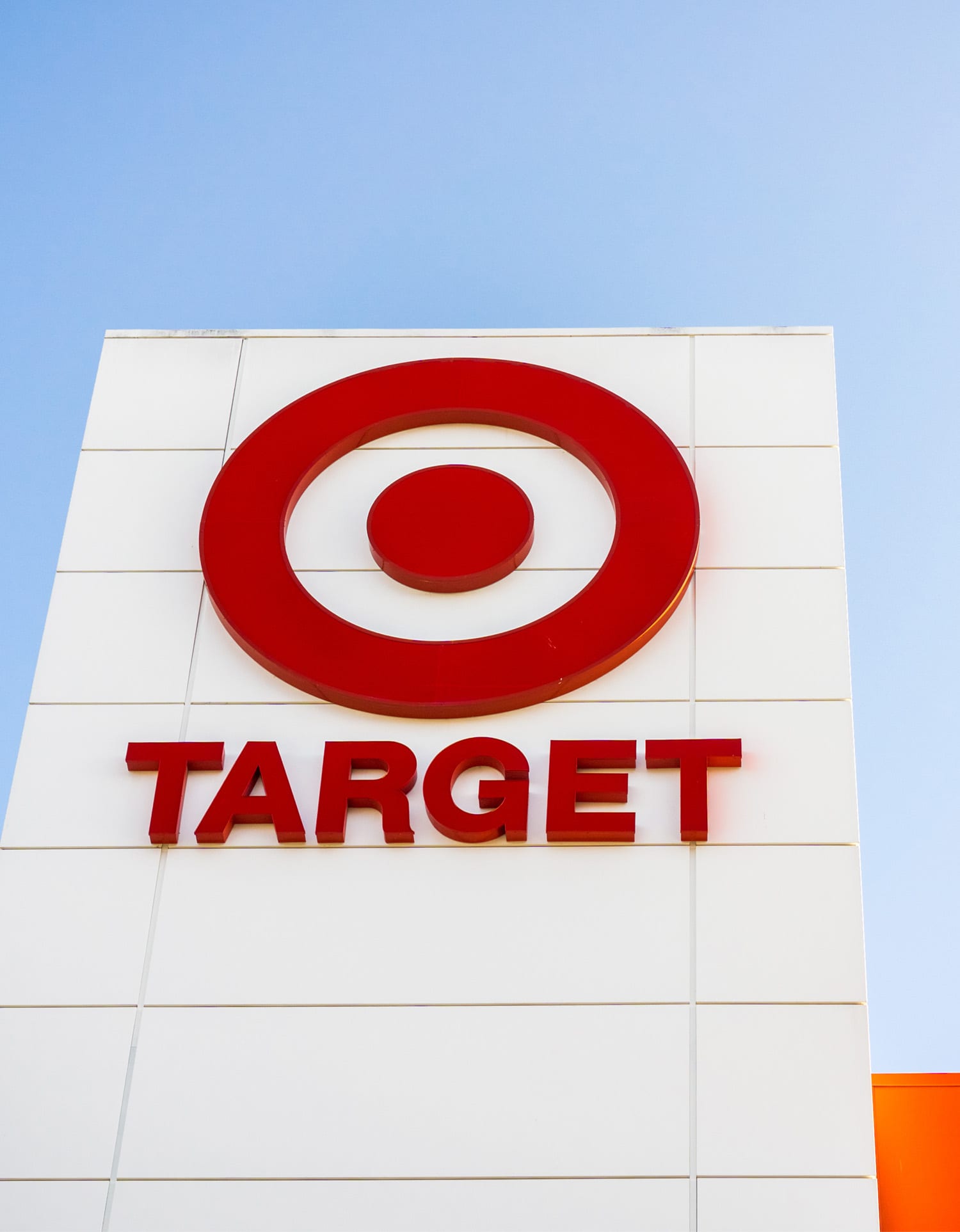Flex reads: Interview with Ask Me About My Uterus author Abby Norman
Readers, assemble!
We are so excited to kick off the Flex® book club with Abby Norman’s Ask Me About My Uterus. In her memoir, Norman, an intelligent and charming storyteller, walks us through her very personal journey with endometriosis in an attempt to make doctors believe (for once) in women’s pain. The book is both frustrating and incredibly eye-opening. It’s 100% worth the read.
Also worth the read? Our follow-up interview with Abby Norman herself. She gives us real talk on how her health has changed since the book was published, the impact of the COVID-19 quarantine on her day-to-day life, and the importance of inclusivity in conversations around endometriosis.
Read the full interview below, then go grab a copy of her book if you haven’t already.
Abby, thank you so much for taking the time to meet with us. We really enjoyed reading your book, and we had a good number of people DMing us to say they were excited we had chosen Ask My About My Uterus as our first Flex Reads book choice.
Can you give us a little background info to kick things off?
Sure! I’m Abby Norman and I’m the author of Ask My About My Uterus. I was telling this story for years before I wrote it. I was saying, “This thing happened to me, did this happen to anybody else?” And it was mind-blowing, because I would get messages from people in all different parts of the world, all different age groups and demographics, and yet they were telling me the same exact story every time:
“I had this problem. I went to my doctor. They told me I was making it up. They told me I was doing it for attention. They told me I was stressed out. They told me I needed to do yoga. And then I had cancer. And then I had PCOS. And then I had this.”
You just hear over and over again from all these different sources. I think my book has become one of those tools for people who have been quietly having this conversation for decades but are just now feeling like they can come forward and talk about it a little bit more openly.
I agree, you’re playing a huge role in this! Flex is a modern period-care company. One of our goals is to normalize the conversations around menstruation and to provide inclusive language as often as possible.
I loved when you shared Ren’s story and said that endometriosis isn’t necessarily a female disease. Why is this distinction important to you?
There were so many people whose stories I wanted to dig into more deeply, but there was so much fear. People didn’t want their names used. So many said, “I want to talk about this, but you can’t use my name because I’ll get fired.” Or, “I want to talk about this, but I don’t want my family to know.”
That’s incredibly frustrating because you just sit there and you’re like, I don’t want you to suffer in silence any longer than you absolutely have to. And here I am, and I want to support you, but I’m recognizing that me being here and being so willing isn’t enough. There have to be more people. There have to be more places that won’t hurt them any more than they’ve already been hurt.
That’s really frustrating because that’s essentially the entire theme of your book – feeling safe and empowered enough to speak your truth and really get this information out there.
Another moment that really stood out to me in the book was when you were in the ER, and the nurse was trying to convince you to take painkillers. You were trying to take charge of your pain and your health, and you were saying, “No, I need to communicate properly to the doctor what my pain level is.”
She just dismissed you, and said something like, “Oh, so you like to be in pain?” You were in too much pain to respond, but if you had the opportunity to go back to that moment, what would you say to that nurse?
Shortly after this book came out, I got much sicker. Not necessarily related to endometriosis, but I was back at square one. Interactions with the doctors were more traumatizing because I was not in a place to defend myself at all.
Before, I felt like I was carrying the weight of having to solve this problem myself – for myself, but also for everybody else. There is this incredible amount of pressure in our society to always be pursuing wellness; if you’re not well, then it’s wrong somehow.
So I entered into a different state where I recognized that it’s not necessarily a personal thing; that these nurses and doctors are operating within a system that has taught them very specific scripts for interacting with and interpreting patients, and that I am not completely responsible for changing that.
It can’t be just one person. Change has to come from a much higher place than I’m ever going to get to, and all I can do from where I am is try to pursue the most effective level of change that I can.
Thank you for sharing. And you’re absolutely right, with social media these days, we are constantly pressured to pursue wellness. Especially now, in COVID times, I imagine how hard that must be for you and your fellow endo warriors. How are you dealing with being in quarantine?
When we all first started wearing masks, I didn’t scramble because I had already been wearing masks for the last two years in the airport because I have been immunosuppressed for a while. So, that wasn’t necessarily new. Leaving my house infrequently was not necessarily new. Working from home was not new. So, I would kind of sadly be like, “Well, not that much has changed.”
I think for a lot of people, not just with endometriosis, but with autoimmune diseases that make them incredibly vulnerable, it’s terrifying. The world feels really scary right now because it is really scary. I mean, we just passed 200,000 deaths. That’s 200,000 people! That’s like the size of several countries – it’s unfathomable.
But when you consider how many of those people were in this particular high-risk group, who had already been living in pain, who had already been trying to take precautions for years, who had been constantly vigilant about their health – and then all of a sudden, when you’re having to rely on everyone else to do their part, you look around and realize that they’re not, and it’s simply because they don’t care. That’s really, really, really hard
Wow. With everything you’ve been so open about sharing, I can only imagine how hard it is for people who are suffering in silence. In the book, you mentioned you really leaned on your online community. Are you still active on those endometriosis forums? Are there any positive stories being shared?
I actually had a lot of people who read the book say, “Well, this isn’t very hopeful.” I felt really bad about it. I had to take some time and step back from that, but I think it was okay because there are so many incredible voices that have come forward in the last couple of years and really given a different set of experiences.
I just think it’s incredibly positive that people are talking about it openly. As much as it physically and emotionally pains me when people post their surgery scars and stories, it’s also really incredible. They’re talking about it, and they are going to be able to feel validated because they’re going to have people say, “Yes, me too. Yes, I went through that. Yes, you’re not crazy. You’re not making it up. You’re not wrong.”
I also had the absolute privilege of meeting and being photographed by a photographer named Georgie Wileman. She is phenomenal. She has a photo series called “This is Endometriosis.” What she invokes in that imagery is something that’s going to be so enduring in this conversation, people are still going to be thinking about it years from now.
When people are able to use another medium to make a statement like that — to give a voice to something that I don’t even know if there are words for — I find that so incredibly powerful.
It’s been a couple years since your book has been published. Do you feel the conversation and research around endometriosis has changed or shifted in that time?
I think we’re getting there. There’s a lot of work that needs to be done, and I think that’s true when you’re looking at anything that has such an incredibly long, enduring precedent that needs to be challenged.
Science is where I find hope in challenging times. I like to think that, had my life played out differently, I would have been that scientist. I would have been that anthropologist. I would have gone out and done those things and contributed to the world in that way. I wasn’t able to do that, but I am so incredibly excited to support the people who are.
There are so many brilliant people who have dedicated themselves to this, and also people at the legislative level. People at the awareness level who’ve gone out there and said, “Yes, we need the treatments. Yes, we need the diagnoses. Yes, we need the cure. But we also need the legislation.”
Before, I said it’s one of those things where all that change has to come from the top down, but at the same time, it also can come upward, too. Collectively, we can all do what we can and contribute. It becomes this thing where you hand the baton off, and someone else can run with it a little farther than you can, because, sometimes, you have to admit you can’t run anymore.
To know that something I put into the world will be able to keep going in this fight on my behalf even if I’m not here to do it, I think everybody hopes for that. You hope you can do as much good as you can while you’re here, and maybe, if you’re really lucky, there’s something that can help keep that work going even if you’re not the one who’s there to do it. That’s where the hope is.
Wow, that’s great. I feel like I’ve asked you so many questions, and I just want to ask one more. Do you have any advice for someone who’s feeling like they’re not being heard by their doctor?
I think one of the biggest things you can do to advocate for yourself in any medical situation is to have things very clearly written down in a way that is as concise as possible.
There is this woman who runs this wonderful program called Pictal Health. She guides people on how to do this level of self advocacy in terms of organizing your symptoms and saying, “Alright, these are my symptoms. This is what triggers them. This is what makes them feel better. This is where they’re located. This is how long I’ve had them.”
I used it at one point with a doctor and he was stunned. I felt much less anxiety going into that interaction because I felt like I had something that helped me say what I needed to say, even when I physically could not.
Seeing It Through: Further Reading on Endometriosis, Reproductive Health Advocacy, and Female Pain
We hope this interview inspired you to dig a little deeper into the dialogue surrounding endometriosis diagnosis and treatment. Abby’s book is only a starting point: As she explained, we still have a lot of work to do on the path to the legitimization of female pain – and towards greater inclusivity in reproductive health diagnoses as a whole.
So, go read Ask Me About My Uterus, and then share it with a friend or family member. When you’re ready for more, check out the following literary and multimedia content recommendations (generously given to us by Abby herself). And don’t forget to keep an eye on the FORNIX blog for more endo-focused content, coming soon.
- Doing Harm by Maya Dusenbery
- Vagina Problems by Lara Parker
- Pain and Prejudice by Gabrielle Jackson
- “This is endometriosis” by Georgie Wileman
- Pictal Health, founded by Katie McCurdy
About the Author
Abby Norman is a freelance editor based in Maine. Her debut book, ASK ME ABOUT MY UTERUS: A Quest to Make Doctors Believe in Women’s Pain, was published by Bold Type Books (Hachette Book Group) in 2018 and received praise by The New York Times Book Review, The Wall Street Journal, New York Magazine, The Washington Post, The Sunday Times, The Irish Times, Literary Review, The Times Literary Supplement, The New Republic, Book Riot, Toronto Star, ELLE, Health Magazine, Undark Magazine, BUST Magazine, Bitch Magazine, Ms. Magazine, BBC Radio 5, and other international media outlets.
As a patient advocate, Abby has been a speaker and board member at conferences such as Stanford University’s Stanford Medicine X and the Endometriosis Foundation of America’s medical conference and Patient Day. She is also a current member of the American Medical Writers Association. Learn more about Abby on her website, www.abbynormanwriter.com, and follow her on Instagram, Twitter, and Facebook @abbymnorman.

© 2021 The Flex Company. All Rights Reserved.
Ask Me About My Uterus by Abby Norman
